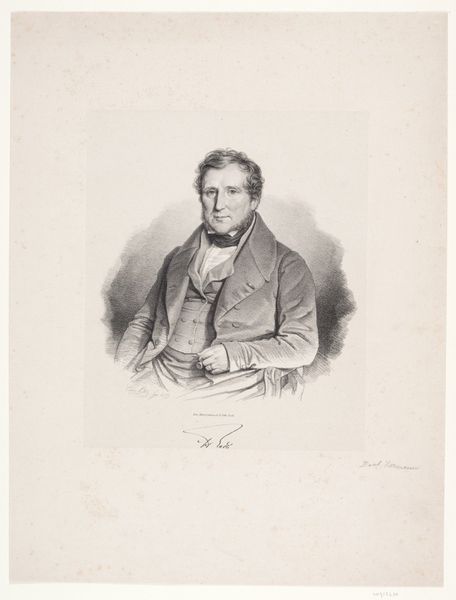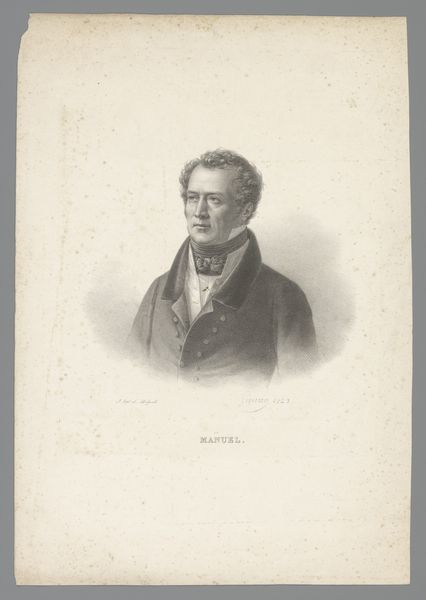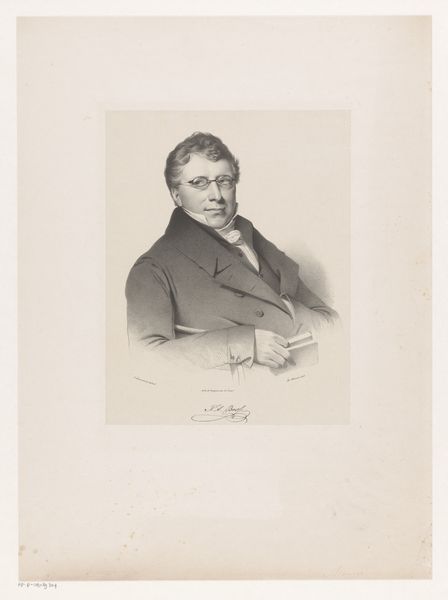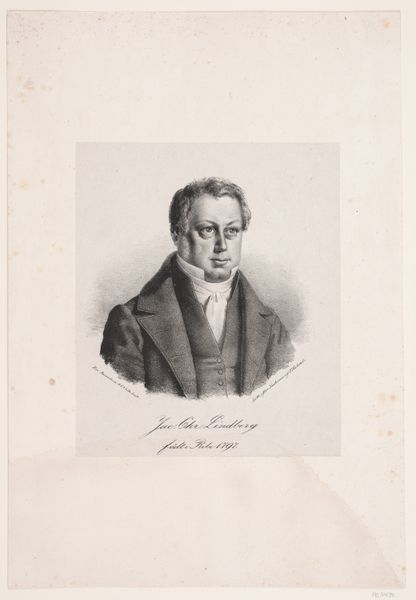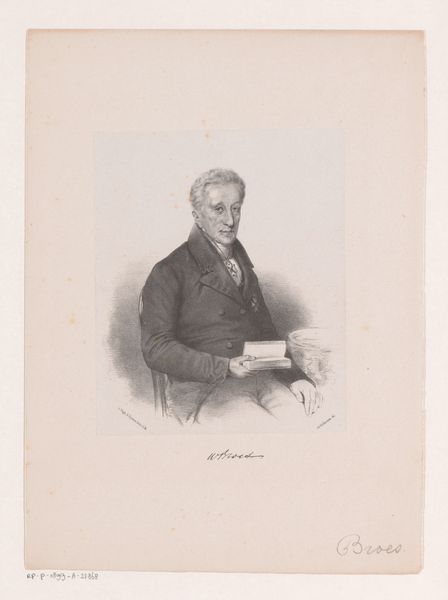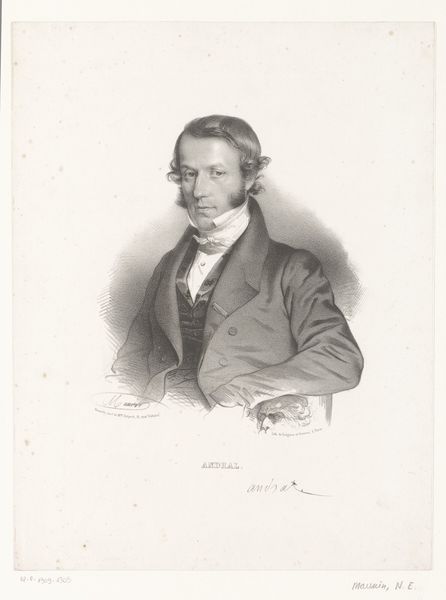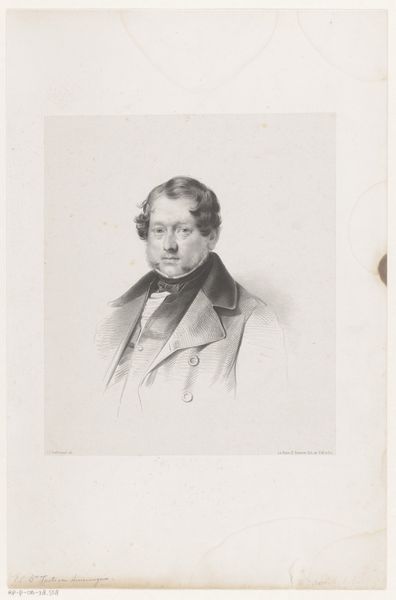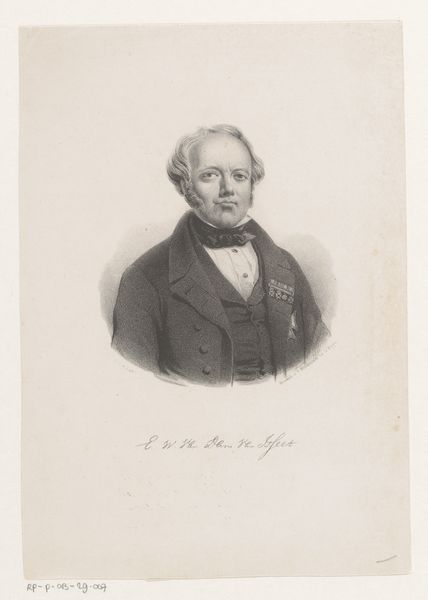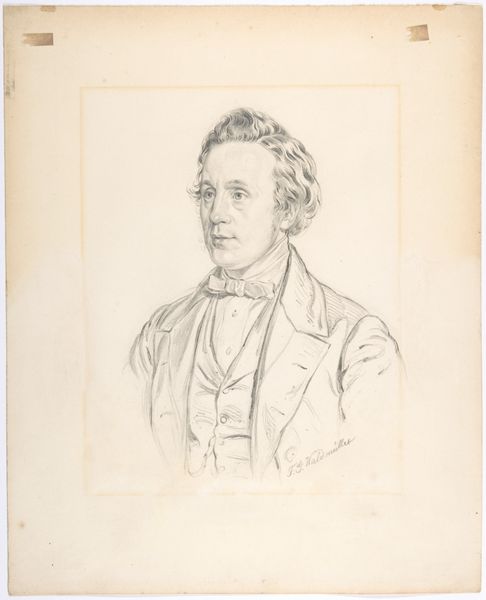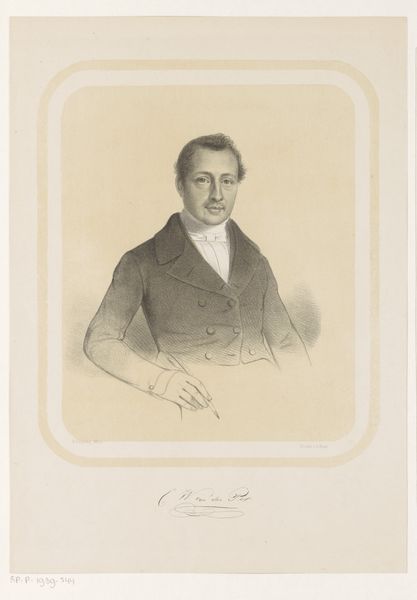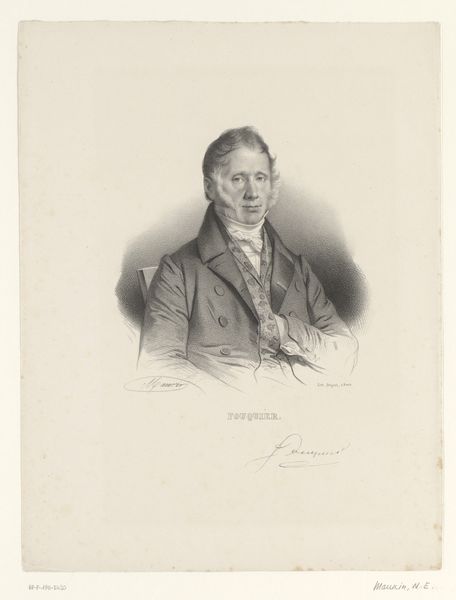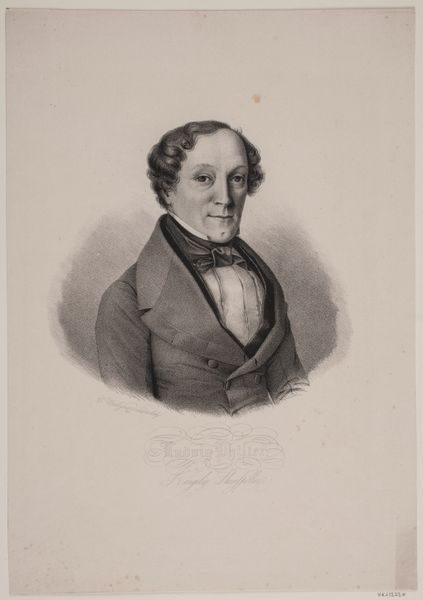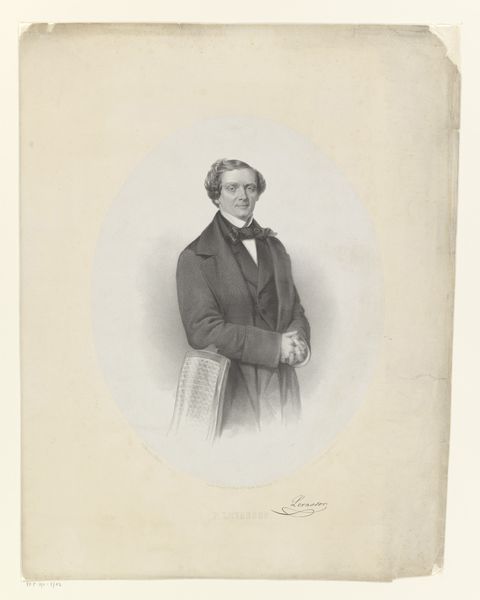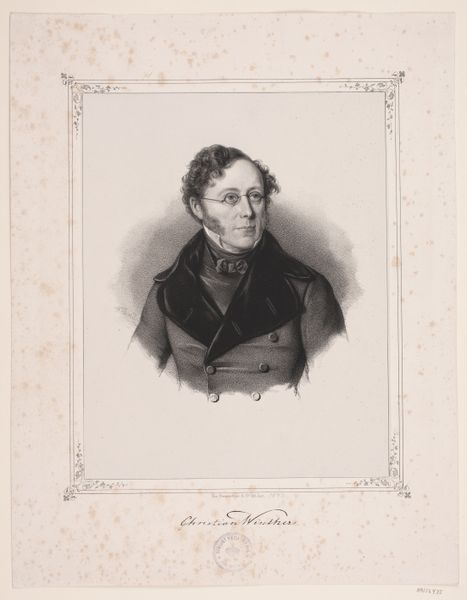
drawing, print, graphite, engraving
#
portrait
#
pencil drawn
#
drawing
#
neoclacissism
# print
#
pencil drawing
#
graphite
#
portrait drawing
#
academic-art
#
engraving
#
realism
Dimensions: height 359 mm, width 277 mm
Copyright: Rijks Museum: Open Domain
This portrait of Philibert Joseph Roux was made by Nicolas Maurin sometime before 1850, using lithography. It’s a printmaking process that relies on the chemical repulsion of oil and water. The image begins as a drawing with a greasy crayon on a flat stone matrix, after which the surface is treated with acid. When the stone is subsequently inked and pressed to paper, the design is transferred. Lithography was invented in the late 18th century, and provided a relatively inexpensive and quick method of producing images in multiples. In this case, the process is exceptionally well-suited to the subject. The sharp lines and tonal gradations lend an air of scientific precision, well-matched to Roux, who was a renowned surgeon. Maurin’s choice of lithography reflects the growing demand for accessible imagery in the 19th century, a development deeply intertwined with the rise of consumer culture. By understanding the materials and processes, we realize how art is not just about individual genius, but also about broader social and economic forces.
Comments
No comments
Be the first to comment and join the conversation on the ultimate creative platform.
